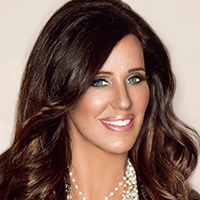 A friend of mine is coming to terms with the fact that her husband is an addict – drinking. It’s been really hard for both of them. They’ve been married for a while and he’s been relatively high functioning. He’s successful professionally and can stay sober for stretches of time. When he falls off the wagon though, he falls hard. Recently those hard falls have been more and more frequent and my friend can’t ignore them or write them off any more. She asked me how I think she should handle it. Here’s what I told her.
A friend of mine is coming to terms with the fact that her husband is an addict – drinking. It’s been really hard for both of them. They’ve been married for a while and he’s been relatively high functioning. He’s successful professionally and can stay sober for stretches of time. When he falls off the wagon though, he falls hard. Recently those hard falls have been more and more frequent and my friend can’t ignore them or write them off any more. She asked me how I think she should handle it. Here’s what I told her.
Talk about it
You have to talk to your partner about it. I don’t mean have one talk and be done. I mean start an ongoing conversation about it. And don’t expect it to be easy or smooth when you bring the topic up. Find a sober time to share your concerns and frame the conversation in facts, not exaggeration. Avoid words like “always” or “never” and bring up specific examples of concerning events. Talk about why you found the drinking episodes so concerning, how they made you feel and anything else you want your partner to know about the situation. You also have to say the tough phrase, “I think you have a drinking problem and I’d like to figure out how to help.” Try not to speak from anger, although it’s very understandable to be angry at the situation.
Make a plan
Together, the two of you should make a plan that involves professional help. This could be in-patient rehab, therapy or Alcoholics Anonymous. Know that you can’t solve this problem on your own and neither can your partner. Addiction is bigger than both of you and you need to bring in the big guns. You may have to do the heavy lifting of the research here because often addicts just aren’t in an emotional place to find the help they need. Call your insurance company to see what’s covered. Print out schedules for AA meetings near your home and your partner’s work. Get recommendations for therapists.
Take care of yourself
Of course, it’s your responsibility to support your partner through tough times. But, your bigger and more important responsibility is to take care of yourself and your children, if you have any. Keep your priorities in check and never put your safety or health behind your partner’s recovery. There may be times when your needs or your family’s needs come before or instead of your partner’s wants and needs. That’s completely fine. You should also be sure you have a support system in place during your partner’s recovery. This is a huge stressor on you and you’re going to need help getting through it. Also, outside support is helpful in terms of offering perspective on the situation. When you’re close with an addict, sometimes it’s hard to see how big or small specific issues are. Trust your loved ones to guide you during this time.
I’m really sorry you’re going through this now. Addiction is an incredibly tough thing to deal with in a relationship. Remember, there are no rights or wrongs when it comes to loving a person with an alcohol addiction, only what’s right for you and your family.





